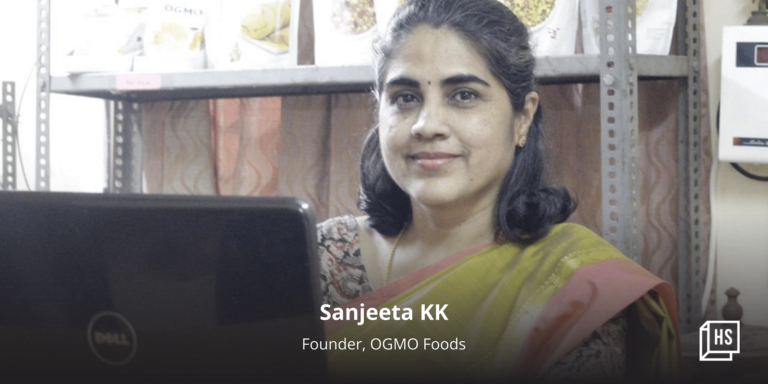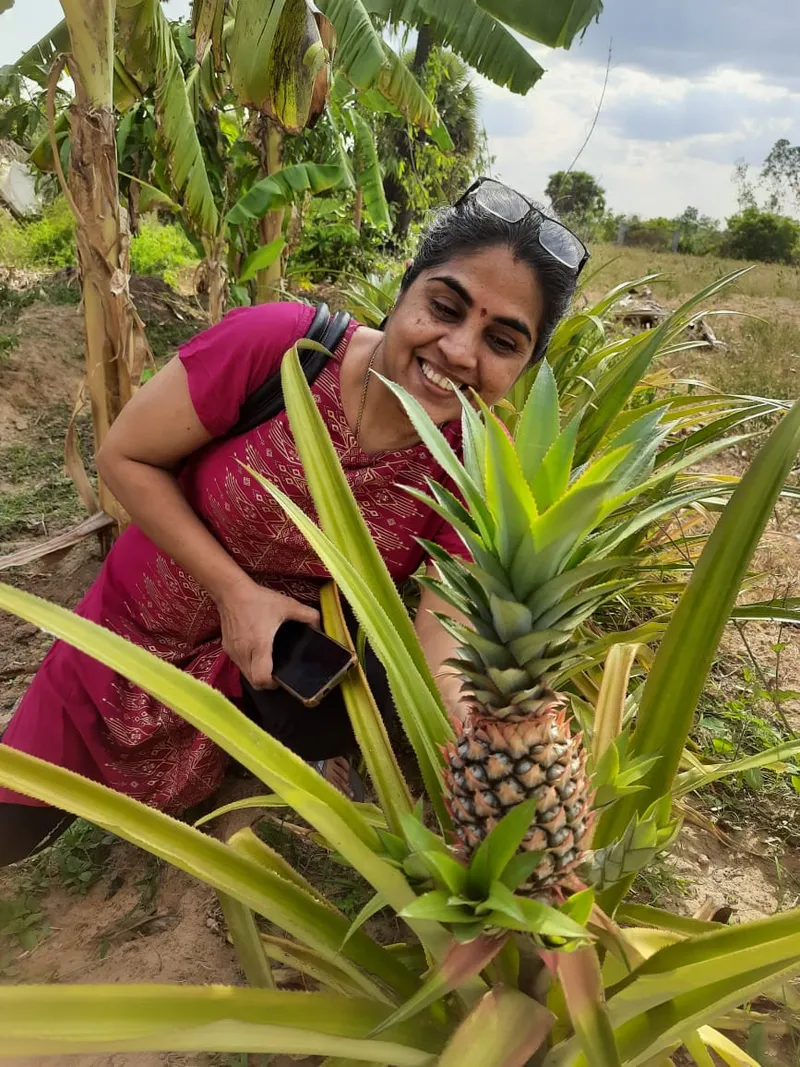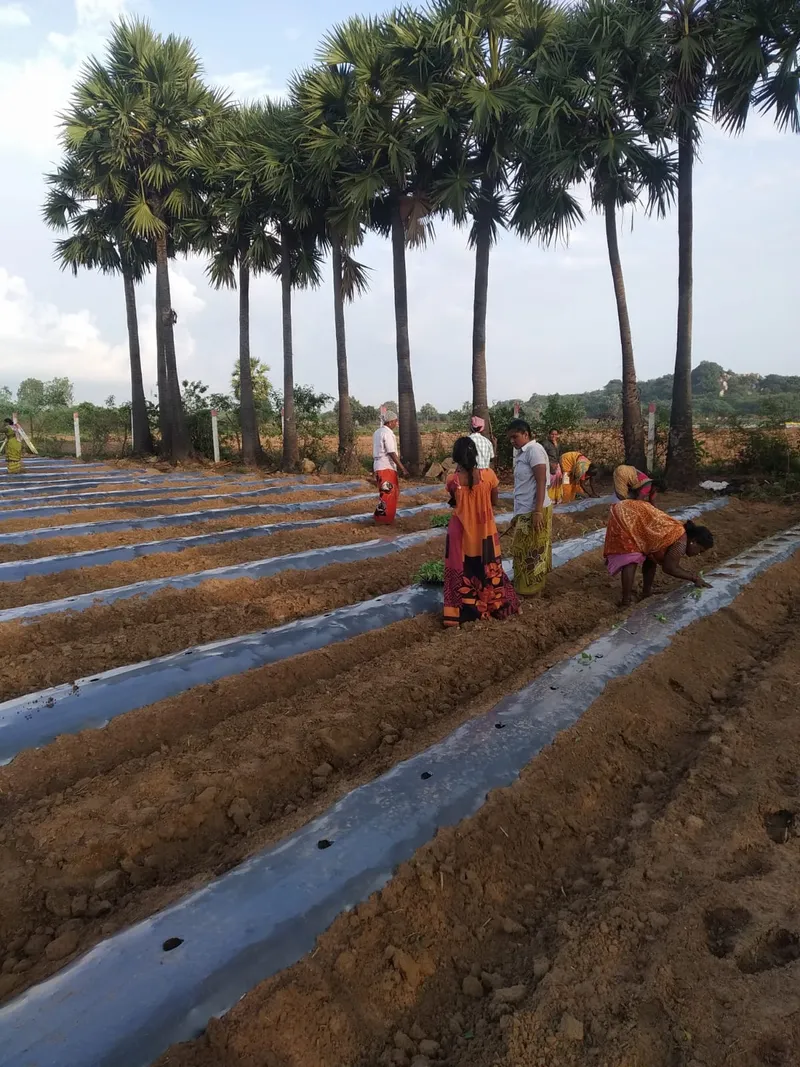
After spending many years working in the corporate world, Sanjeeta KK’s life took a sudden turn in the 90s when she had to undergo a medical emergency. It made her quit her full-time job and take a break for eight long years.
Being passionate about all things food, in the second innings of her career, she took on multiple roles—food blogger, food styling consultant and social entrepreneur—and in 2018, launched her healthy food brand, OGMO Foods—which stands for Organic Movement—in Chennai.
Getting on the ground
Taking a leaf out of the corporate playbook, Sanjeeta established processes while running operations, which led to some amusing and revealing results.
“On the first day of production, I meticulously labelled and organised all the raw material containers to make the process easy, and left notes like, ‘Measure 20kg of barnyard millet, 5 kg of raisins, 1 gram of pink salt.’ I expected my staff—all of them from rural areas—to use the blender, however, they all had a puzzled look. That’s when I came to know that none of them knew how to read or write—either English or Tamil,” recalls Sanjeeta, 53, Founder of OGMO Foods, in a conversation with HerStory.
While the task at hand was enormous, it didn’t deter her. One day, she visited her farm near Cheyyur in Tamil Nadu, where Sanjeeta had been cultivating organic vegetables and fruits, to talk to the local community of farmers.
“They told me that they used to grow millets and lots of ancient grains that Tamil Nadu used to consume in the past, but they stopped doing so because there was no market for them and nobody was consuming them. We then thought why not start producing the millets again, and find uses for it as it also helps farmers. Millet grains use very less water compared to wheat or rice,” says Sanjeeta.

Sanjeeta KK cultivates vegetables and fruits on her farm near Cheyyur, about 100 kms from Chennai
Known as the super crop of our ancestors, millets are mainly categorised into two types based on their size—major millets (sorghum and pearl millet) and small millets, aka minor millets. The small millets that are popularly used include finger millet, little millet, kodo millet, foxtail millet, barnyard millet, and proso millet.
According to ICRISAT, an organisation that conducts agricultural research, before the Green Revolution in the 1960s, millets made up around 40 percent of all cultivated grains (more than wheat and rice). However, since the revolution, the production of rice has increased doubly and wheat production has tripled.
When Sanjeeta started a small production unit on her farm, sourcing raw materials such as millets from local farmers, she decided to start by using minor millets like barnyard millet and little millet (called samai arisi in Tamil).
Minimally processed without any artificial colour, preservatives or flavours, OGMO Foods’ products comprise overnight millets (like overnight oats), health mixes, baby products, granolas, energy bites, and snacks, ready-to-cook premixes, pre-soaked minor millet, whole grain, and flour. Health mixes, energy bites, and premixes are the brand’s fast-moving products, according to Sanjeeta.
“Until now, we haven’t done any kind of marketing or advertisement, and have relied on word of mouth. We retail at 30 to 40 regional retail stores,” she remarks, adding that the overnight millet is the brand’s flagship product, which has never been offered by any other brand.
Besides retailing at many premium stores in Chennai, Pune and the northeast, OGMO’s products are available online through Amazon and BigBasket.
Social entrepreneurship
A bootstrapped company with social entrepreneurship at its core, OGMO Foods currently employs 12 people, many of whom are women, who work both at the farm and factory. Sanjeeta’s husband, Krishnakumar—a former IT professional, helps with the day-to-day operations.
“We are not looking at making money because my children are settled and there is really no need. Our main motto is to make a difference in the life of others, especially in three areas—women’s empowerment, healthy eating, and helping farmers,” says Sanjeeta.
“In the near future, we plan to introduce many new exciting products based on minor millets and focus more on natural farming. At the moment, we just feel proud to be able to play a tiny role in creating awareness about our long-forgotten ancient grains called minor millets, and bring them back to our tables,” she adds.

Local farmers prepping the land for sowing.
It’s been four years since Sanjeeta shifted gears to become a social entrepreneur, working at the grassroots with farmers and labourers. Her fervid words of advice to women who want to take the entrepreneurial leap are to stay focussed and start–however small.
“A common challenge faced by working women is the constant need to multi-task and achieve that elusive work-life balance. But with the right kind of support and determination, you can easily learn to wear all the hats with great aplomb. Stay focused on your passion or dream, start small, move ahead, and scale up only when you are ready,” she concludes.